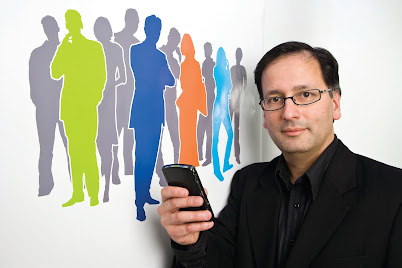
T
his posting is from guest blogger and friend, Danny Brown. Danny and I met through Twitter and although he is a Scot who lives in Canada and I'm an Australian of Spanish heritage, we both 'connected' on a concept he founded called the 12for12k Challenge, a unique charity project using social media to change the lives of millions in 2009.
Danny was kind enough to review my book, Connection Generation. As he admits openly, although we are friends, " ..this hasn’t affected this review. If it blew I would have said so – or just not reviewed it." Here's the review reproduced with Danny's approval:
Connection Generation by Iggy Pintado is one of these books that comes along and makes you say, “You know, I knew that but I didn’t know that.” It’s crammed full of informational goodness, ideas and theories that you might have been thinking about subconsciously, but didn’t really think about until reading Iggy’s book.
While Connection Generation may sound as if it’s aimed at a specific age group, in reality it goes far deeper. As Iggy himself says, “It’s not for the younger generation or the tech savvy. If you have a computer or phone, you’re already connected.”
So what is Connection Generation and why should you read it? Simple – it promotes the idea that we’re all connected; we just need to know how.
If you’ve read Malcom Gladwell’s The Tipping Point, it could be said that Connection Generation is the unofficial sequel to that tome. Where Gladwell talks about Connectors, Mavens and Salesmen, Iggy offers up different types of Connectors – Basic, Passive, Selective, Active and Super.
These refer to how connected each person is. This could be locally, hyper-locally, online, via business networks, phone lists and more. Iggy uses personal stories about his friends and family, as well as wider stories about strangers and people in the news, to show how each different Connector is a part of each other.
You may be a Basic Connector, with just a phone and email (maybe not even email). You may be a Selective Connector, with just a few chosen friends on Facebook and business connections on LinkedIn. You could be a Super Connector, with presences on multiple networks, hundreds of email addresses and phone numbers.
It doesn’t matter; what does matter is that every one has a part to play in how we all interact, both online and offline. These connections help us move forward in our personal and business lives, and ensure that we’re always just a heartbeat away from a cast of millions to help us when in need.
What I enjoyed about Iggy’s book is that it’s written from a completely human angle. He doesn’t separate techy nerds (like me) from everyday users (like my grandmother). He strips away the fear that some people may have about this strange new world we’re now part of, and transforms it into examples you can relate to.
For instance, that phone call you had with your granddaughter? She just tweeted it to her 300 friends on Twitter. One of her friends liked it so much, she just blogged about how cute your grandmother sounds and is now sharing that with 10,000 blog subscribers.
You may not be a Super Connector, but as Connection Generation shows, you don’t have to be. Every single one of us is connected, from the tech savvy to the Luddite to the in-between. And if we’re all connected, it becomes easier to help. And if we all help each other, maybe there’s just a chance the world might be a better place.
Check out Connection Generation today – I think you’ll enjoy it.
Disclaimer – Iggy Pintado is a personal friend but this hasn’t affected this review. If it blew I would have said so – or just not reviewed it.
You can read more from Danny at his social media, PR and marketing blog, or connect with him on Twitter.


